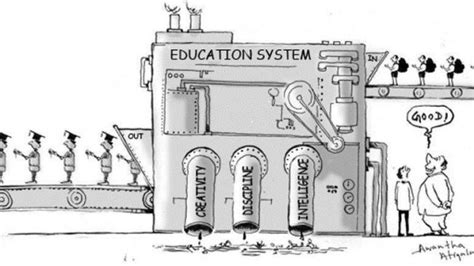On Feminism and Misandry Ⅰ

An opposing view to this argument can be found here.
“I have as much muscle as any man, and can do as much work as any man. I have plowed and reaped and husked and chopped and mowed, and can any man do more than that? I have heard much about the sexes being equal; I can carry as much as any man, and can eat as much too, if I can get it. I am strong as any man that is now. As for intellect, all I can say is, if woman have a pint and man a quart—why can’t she have her little pint full? You need not be afraid to give us our rights for fear we will take too much—for we won’t take more than our pint’ll hold.” – Sojourner Truth’s famous speech ‘Ain’t I a woman?’
One hundred and forty women died at the hands of their intimate partner (or family member) just yesterday. Yes, died. And that is just the number that died. Your imagination can paint the picture of the number that suffered assault, violence or any form of harassment that did not lead to death. What does it take to kill a human that you supposedly love? Pure hatred and disgust consumed you that you killed her—whether intentionally or mistakenly—you set out to hurt her, and you did. These numbers are a known trend; they are the result of the inequality suffered by women, the power dynamic that tends to play out in relationships and the hate that these men, whether they realise it or not, have for women. But suddenly, with the recent wave of radical feminism, misandry is the problem?
The first globally recognised feminist movement was the women’s suffrage—the fight for the right of women to vote. Prior to this movement, which started in the 18th century, very few women had the right to vote. In 1848, about 200 women met in a church. They arrived at a resolution to demand some rights. These rights include, but are not limited to, reproductive and voting rights. The fight for women’s right to vote continued till the 15th Amendment to the U.S. Constitution. However, true suffrage was not achieved till the 19th Amendment when all women, white and of colour, were allowed to vote. With women’s suffrage came a few other entitlements: the right to contest for public offices, legislative advocacy and social reform, among others. This movement was rooted in liberalism. Soon after the success of women’s suffrage, women started to question what exactly their roles in society were. They began to challenge the notion that men were breadwinners and women homemakers. With the rise of social media, feminism soon became about the absence of rules guiding a woman’s life. A woman should simply choose how she lives her life.
Feminism, lexically, is the belief in the social, economic and political equality of the sexes. This means women should have equal rights as their male counterparts, and the feminist movement seeks to ensure this. The movement is manifested in fights against workplace inequality, unequal access to education, violence against women and women’s bodily autonomy, among others. While the doctrines of feminism may differ among various groups of women, they all share a common goal—the equality of all sexes in all areas of life. Although this movement began as far back as the 18th century, there is much more work to be done, and women championing this movement cannot afford to make their oppressors (i.e. men) the focus. That is why the idea that feminism is rooted in misandry is simply ridiculous.
Misandry is the dislike of, contempt for and ingrained prejudice against men. It has become common for men to try to ridicule feminism by claiming that it is rooted in the hatred of men. It is not (we shall soon get to that), but even if it were, would it be so wrong for women who are seething with anger and fighting against the inequality and oppression of women to hate men and the ideology that perpetuates this oppression? A 2023 study titled ‘The Misandry Myth: An Inaccurate Stereotype About Feminists’ Attitudes Toward Men’ was conducted to measure the levels of hostility felt towards men by different groups. The groups involved in this study were feminist women, non-feminist women and men. It was established that the hostility felt towards men by the different groups that participated in the study was on the same level. The major difference in the attitude of feminist women and non-feminist women towards men was in the level of benevolence towards men. While non-feminist women were more likely to excuse or ignore men’s bad behaviour towards them, feminist women would not and would simply call them out. This vocal intolerance to bad behaviour is what some men have interpreted as hatred. When a man touches a non-feminist woman for no reason in public spaces and she finds it uncomfortable, she does not talk, and she is seen as man-loving. When this behaviour is replicated with a feminist woman and she calls it out, she is seen as man-hating. After all, it was done to the non-feminist woman, and she did not raise an alarm, so the one who did must hate men.
For women who have suffered some injustice—either directly or indirectly—at the hands of men, it is not uncommon for such women to hate the perpetrator of this injustice. This hatred may subconsciously extend to people who look like their oppressors. For them, misandry is justifiable. But this is not borne from their feminism; it is from their negative experiences with men. As you read this, the “but it is not all men” clause has probably crossed your mind. Yes, not all men actively partake in the oppression of women. But the patriarchal system has made it such that all men ‘enjoy’ from this systemic and historic oppression of women. Women get shot for simply saying no to men, so you do not get a medal for not shooting a woman who said no to you. If you think you deserve some recognition for that, it is oppressive. So, it is indeed all men, as long as they continue to benefit from the patriarchal ideology.
The way misandry affects feminism is still largely up for discourse. Some argue that the spice to ignite the vigour to champion the feminist movement is a dash of misandry. That the right amount of man-hating—no more and no less than the right amount—is what will drive feminism forward faster. Many argue that misandry takes away from the purpose of the feminist movement and hurts the movement in a way. Whatever the effect is, we must understand that misandry is not a prerequisite for being a feminist. It just so happens that some women, who are feminists, have suffered experiences that have made them develop some level of contempt for men. And for these women, their experiences are valid and their reactions are valid.
When we think of feminism, we must think of it as a whole concept in and of itself. We must remember that she walked into hell to fight the devil and snatch these rights for women. We must understand the struggle that went into it. We must not ridicule feminism by equating it with misandry. If misandry should be discussed, let the effects of misandry be compared to the effects of misogyny. Those are equals. Feminism is a movement with net positives for society, both men and women, and we must continue to champion it.





Lovely piece!